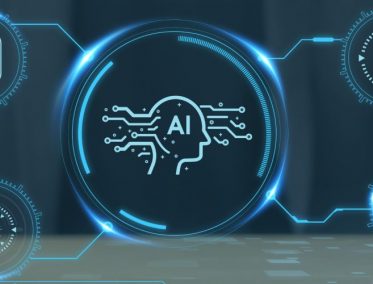Traditional testing methodologies, while effective, are increasingly challenged by the need to keep up with rapid development cycles and complex software architectures. Enter AI-based test case generation—a transformative approach that leverages artificial intelligence to automate the creation of test cases, significantly speeding up the testing process and enhancing the accuracy of test coverage.
This blog delves into the concept of AI-based test case generation, its benefits, and how it is revolutionizing the testing landscape by addressing some of the most pressing challenges faced by modern development teams.
Understanding AI Based Test Case Generation
AI-based test case generation is the process of using artificial intelligence and machine learning algorithms to automatically generate test cases based on the analysis of software requirements, code, and user behavior. This approach leverages the ability of AI to learn from vast amounts of data, identify patterns, and predict potential areas where bugs may occur, leading to the creation of highly effective test cases.
Unlike traditional test case creation methods, which often rely on manual input and are time-consuming, AI-based approaches can rapidly produce a comprehensive set of test cases that cover a wide range of scenarios, including edge cases that might be missed by human testers.
The Advantages of AI Based Test Case Generation
The integration of AI into the test case generation process offers numerous benefits that address the challenges of speed, accuracy, and coverage in software testing. Here are some of the key advantages:
1. Speeding Up the Testing Process
One of the most significant advantages of AI-based test case generation is the acceleration of the testing process. Traditional test case creation can be a labor-intensive task, often requiring detailed analysis and manual effort. AI-driven tools, however, can automate this process, generating test cases in a fraction of the time it would take a human tester.
Automated Test Creation: AI can quickly analyze software requirements, design documents, and code to generate relevant test cases without the need for extensive manual intervention. This reduces the time required to create test cases and allows testing to start earlier in the development cycle.
Continuous Testing: With AI, test cases can be generated and executed continuously as the code evolves. This aligns with modern CI/CD pipelines, where testing needs to keep pace with rapid code changes. The ability to generate and update test cases automatically ensures that testing is always up-to-date and relevant to the latest codebase.
2. Enhancing Test Coverage and Accuracy
Another critical advantage of AI-based test case generation is the improvement in test coverage and accuracy. AI can analyze large datasets, including historical bug reports, user behavior data, and application usage patterns, to identify potential areas of risk and generate test cases that target these areas.
Data-Driven Testing: By leveraging historical data and usage patterns, AI can identify scenarios that are most likely to lead to defects. This ensures that the generated test cases are focused on the most critical areas of the application, leading to more effective testing and higher defect detection rates.
Comprehensive Coverage: AI-based tools can generate test cases that cover a wide range of scenarios, including edge cases and complex workflows that might be overlooked by manual testers. This leads to more thorough testing and reduces the likelihood of bugs slipping through to production.
3. Reducing Human Error
Human testers, while skilled, are prone to making errors, especially when dealing with complex applications and large volumes of test cases. AI-based test case generation mitigates this risk by automating the creation process, reducing the likelihood of errors and inconsistencies in the test cases.
Consistency and Reliability: AI ensures that test cases are generated consistently and accurately, regardless of the complexity of the application. This consistency leads to more reliable testing outcomes and increases the confidence in the software’s quality.
Error Prediction: AI can predict areas where errors are most likely to occur based on patterns learned from historical data. This predictive capability allows testers to focus on the most critical areas, further improving the accuracy and effectiveness of the testing process.
Real-World Applications of AI Based Test Case Generation
AI-based test case generation is being adopted across various industries, from finance and healthcare to retail and technology. Here are some real-world applications where AI-driven testing is making a significant impact:
1. Financial Services
In the financial sector, where software applications handle sensitive data and require the highest levels of accuracy, AI-based test case generation is used to ensure that applications meet stringent regulatory requirements. By automatically generating test cases that cover a wide range of scenarios, financial institutions can achieve higher levels of compliance and reduce the risk of costly errors.
2. Healthcare
Healthcare applications must adhere to strict regulations and standards to ensure patient safety and data privacy. AI-driven test case generation helps healthcare providers test their software more efficiently, ensuring that all regulatory requirements are met and that applications are free from critical defects.
3. E-commerce
In the fast-paced world of e-commerce, where user experience and uptime are critical to business success, AI-based test case generation is used to continuously test and validate applications. This ensures that e-commerce platforms remain reliable, secure, and responsive to customer needs, even as new features and updates are rolled out rapidly.
Overcoming Challenges in AI Based Test Case Generation
While the benefits of AI-based test case generation are clear, there are challenges that organizations may face when implementing this approach. Understanding these challenges and how to address them is crucial for successful adoption.
1. Data Quality and Availability
AI-driven tools rely heavily on data to generate effective test cases. If the data used to train the AI models is incomplete, inaccurate, or biased, the quality of the generated test cases may suffer.
Ensuring Data Quality: Organizations must ensure that the data used for AI-based test case generation is of high quality and representative of the various scenarios the application may encounter. This may involve cleaning and preprocessing data, as well as using diverse datasets to train the AI models.
Access to Historical Data: AI models benefit from access to historical bug reports, test results, and usage data. Organizations should ensure that this data is readily available and well-organized to maximize the effectiveness of AI-driven test case generation.
2. Complexity of AI Models
AI models can be complex and may require specialized knowledge to configure and maintain. Organizations may face challenges in implementing and managing AI-based test case generation tools without the necessary expertise.
Investing in Expertise: Organizations should invest in training and hiring professionals with expertise in AI and machine learning. This will ensure that the AI-based test case generation tools are configured and maintained effectively, leading to better outcomes.
Choosing the Right Tools: There are various AI-based test case generation tools available, each with its own strengths and weaknesses. Organizations should carefully evaluate these tools and choose one that aligns with their needs and capabilities.
The Future of AI Based Test Case Generation
As AI technology continues to evolve, the capabilities of AI-based test case generation will only improve. Future advancements may include more sophisticated AI models that can understand natural language requirements, generate even more accurate test cases, and provide real-time feedback to developers during the coding process.
In addition, the integration of AI with other emerging technologies, such as blockchain and IoT, may open up new possibilities for testing complex, interconnected systems. Organizations that embrace AI-driven testing today will be well-positioned to take advantage of these future advancements and maintain a competitive edge in the software development landscape.
Embracing AI for Enhanced Testing
AI-based test case generation is revolutionizing the way organizations approach software testing. By leveraging the power of AI, organizations can accelerate the testing process, improve test coverage and accuracy, and reduce the risk of human error. While challenges exist, the benefits of AI-driven testing far outweigh the obstacles, making it a critical tool for organizations seeking to deliver high-quality software in a fast-paced, competitive environment.
As AI technology continues to advance, the role of AI in software testing will only grow, making it essential for organizations to embrace AI-driven tools and methodologies. By doing so, they can ensure that their testing processes are efficient, effective, and aligned with the demands of modern software development.



